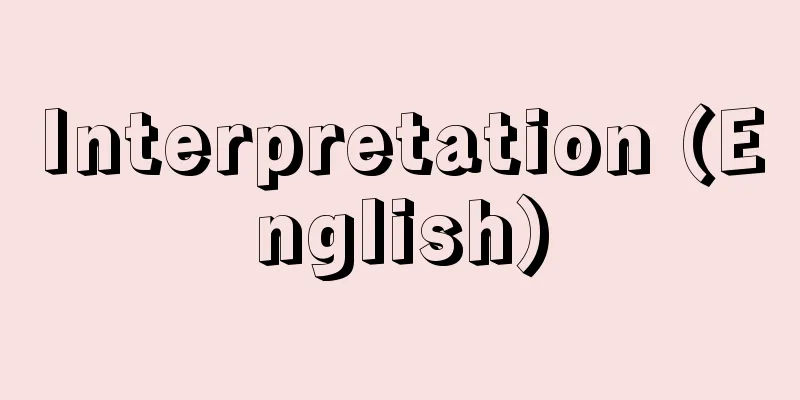Interpretation (English)

|
In interpreting the law, the meaning of the words used in the legal text is interpreted broader and more extensively than in ordinary usage. This is the opposite of narrow interpretation. It can be distinguished from analogical interpretation based on whether it is within the framework of the possible meanings of the words, but the boundary between them is not always clear. Source: Encyclopaedia Britannica Concise Encyclopedia About Encyclopaedia Britannica Concise Encyclopedia Information |
|
法の解釈に際して,法文で用いられている言葉の意味を通常の用法よりも広く,拡張して解釈すること。縮小解釈に対する概念である。類推解釈と言葉の可能な意味の枠内であるかどうかで一応区別されうるが,その境界は必ずしも明確ではない。
出典 ブリタニカ国際大百科事典 小項目事典ブリタニカ国際大百科事典 小項目事典について 情報 |
>>: Extended Movie - Kakucho Eiga
Recommend
Saman
...2231m above sea level. In Sinhala it is called...
Yggdrasill (English spelling)
The World Tree is a giant cypress tree that appear...
Supriyadi
…However, the rebellion was suppressed within a f...
IUPAB - International Union of Physical and Chemical Research
International Union for Pure and Applied Biophysic...
Mantra - Odaimoku
…Generally, it means the title or heading of a bo...
Iona [island] - Aiona
…born in Donegal as a member of the royal family....
The Law of Establishment - The Law of Establishment
An ancient Japanese legal code. It is also read as...
Trogus lapidator (English spelling) Trogus lapidator
…[Setsuya Momoi]. . . *Some of the terminology th...
Katano [city] - Katano
A city in the northeastern part of Osaka Prefectur...
Mikhail Mikhailovich Prishvin
1873‐1954 A writer from the Russian Soviet Union. ...
Marine polar air mass - Marine polar air mass
...In mid- to high-latitude regions, temperatures...
Niitsuru [Village] - Niitsuru
A village in Onuma County, western Fukushima Prefe...
Onogawa Power Plant - Onogawa Power Plant
...In 1916, a dam was built at the outlet, and th...
Potocki, SK (English spelling)
…Poland's largest university. Founded in 1816...
Health check-up - Ningendokku
It is a comprehensive medical checkup of the whol...









